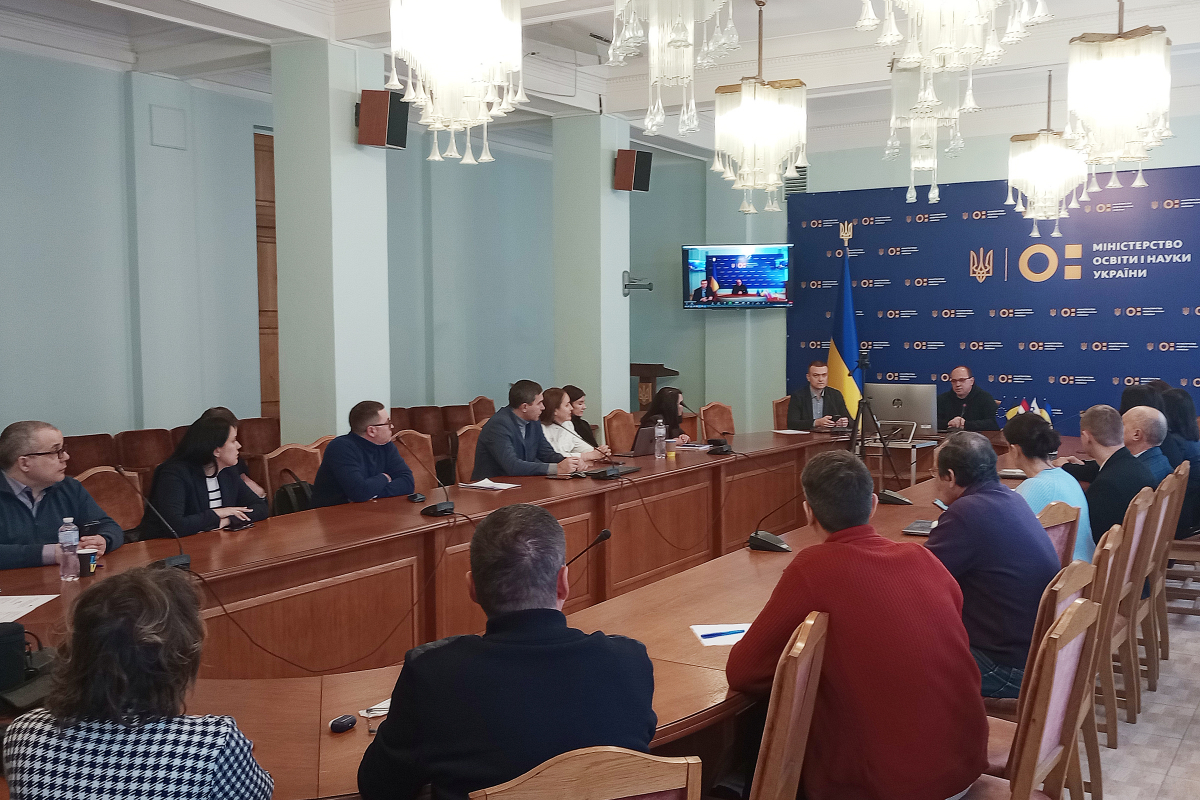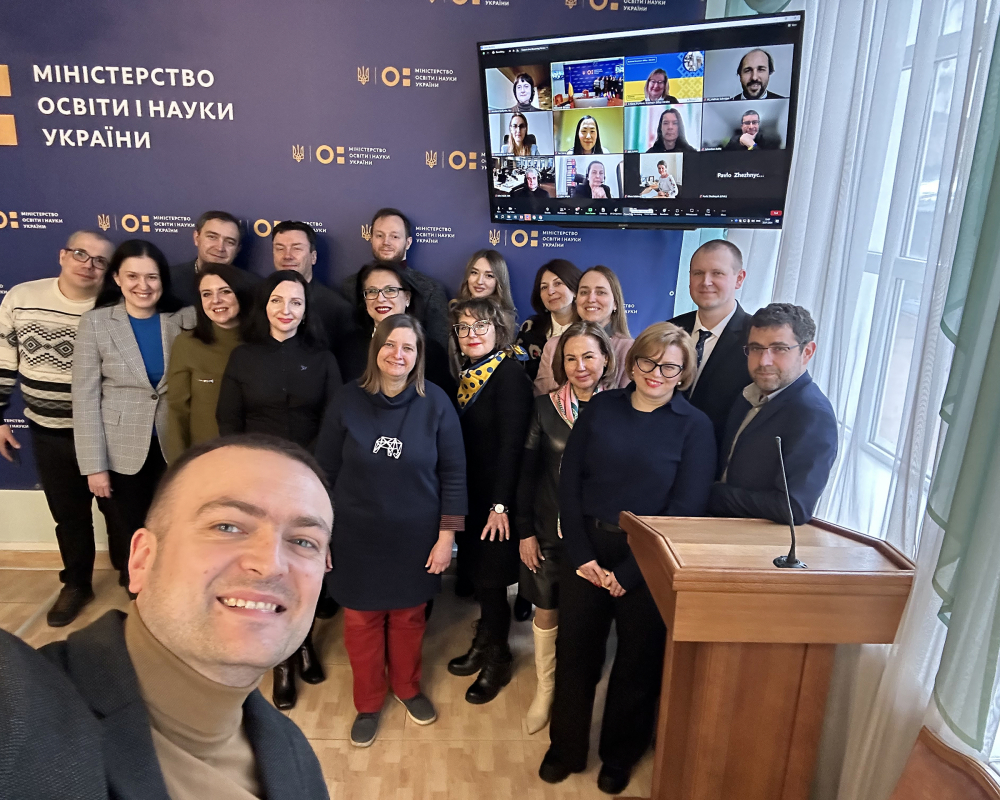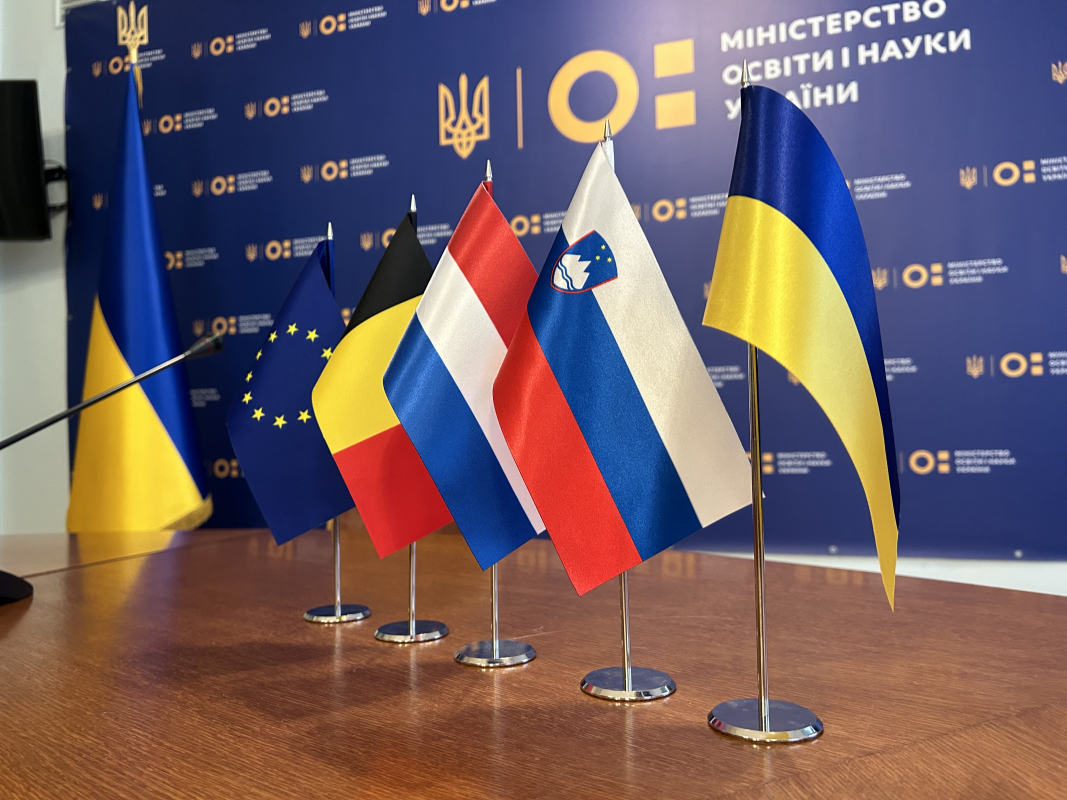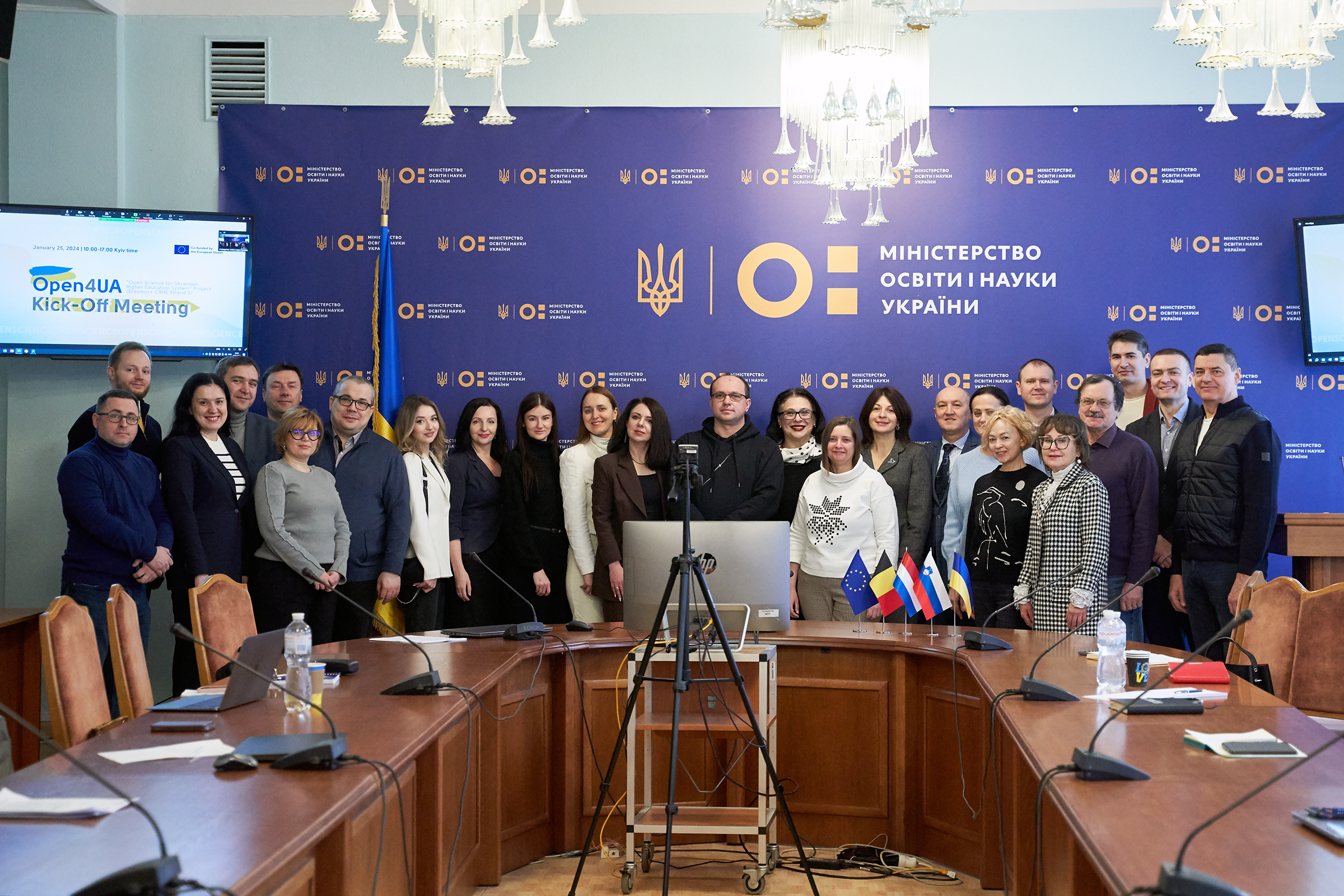On January 24-25, the first part of the Kick-Off Meeting of the “Open Science for Ukrainian Higher Education System” (Open4UA) project, co-funded by the European Union under the Erasmus+ program (Capacity Building in Higher Education), took place in the collegium hall of the Ministry of Education and Science of Ukraine (MESU). As a structural project (Strand 3), Open4UA aims to influence systemic change in Ukraine through active cooperation with key stakeholders and is a logical continuation of the OPTIMA project to develop open science practices in Ukraine.
The consortium comprises 16 organisations from Belgium, the Netherlands, Slovenia, and Ukraine, including the Ministry of Education and Science and the National Research Foundation of Ukraine (NRFU). The coordinating organisation is Lviv Polytechnic National University, which will be primarily represented by the Department of Social Communication and Information Activities.
In particular, the project provides for:
- Developing a draft law of Ukraine on amendments to the legislation on state policy in the field of open science.
- Preparation of recommendations for implementing CoARA principles in the policy and practice of project evaluation by national donors.
- Development of an open database of projects funded by the NRFU.
- Preparation of recommendations for state certification of higher education institutions based on the principles of open science.
- Development of institutional tools for the implementation of open science and reform of research evaluation.
The first day of the event began with welcoming remarks by Denys Kurbatov, Deputy Minister of Education and Science of Ukraine, who emphasized the importance of reforms in research assessment and the implementation of open science in Ukraine. Afterward, Hryhorii Mozolevych, Acting Director General of the Directorate of Science Development of the Ministry of Education and Science, stressed on the need to study international experience and best practices to implement these reforms and the important role of the Open4UA project in this process.
On this day, members of the Open4UA consortium worked together with members of the MESU working group to develop a methodology for research assessment of research facilities and higher education institutions. This combination of the two teams (which, by the way, have many members in common) was extremely useful, as it provided synergy and allowed for a detailed discussion of the working group's ideas through the prism of various scientific disciplines, from medicine and law to physics and art history.
Oleksandr Berezko, Open4UA project coordinator, Co-Chair of CoARA Chapter Ukraine, and secretary of the MESU working group outlined promising areas for the development of research assessment in Ukraine by the principles of open science and CoARA and spoke about the current developments of both teams. This was followed by a lengthy discussion in small groups in the world café format moderated by representatives of the project consortium. Currently, the results of this discussion need to be analyzed and summarized, but it is already clear that they will form the basis for future developments of Open4UA and the working group. Zhanna Talanova, a representative of the National Erasmus+ Office in Ukraine, praised the active cooperation with the Ministry of Education and Science from the very beginning of the project, as this will ensure its maximum impact.
The second day of the kick-off meeting was held in a hybrid format, which included online participation of the EU consortium members, as well as all those who could not be in Kyiv in person. It started with inspiring words from Hryhorii Mozolevych, Giulia Marano, Project Officer from the European Agency for Education and Culture (EACEA), Svitlana Shytikova (Head of the National Erasmus+ Office in Ukraine), and Tony Ross-Hellauer, Head of the Open and Reproducible Research Group at the Graz University of Technology and member of the project's Advisory Board.
After a brief overview of the goals and work plan of Open4UA by the coordinator, presentations by all members of the consortium began, which allowed participants to get to know all the partner organizations better. Pavlo Zhezhnych, Vice-Rector for Scientific and Pedagogical Work and Informatisation of Lviv Polytechnic National University and institutional coordinator of Open4UA represented the coordinating organisation. The recording of this part of the meeting can be viewed on the project's YouTube channel.
In the afternoon, the work package leaders (Lviv Polytechnic, University of Ljubljana, Yaroslav Mudryi National Law University, NRFU, and Igor Sikorsky Kyiv Polytechnic Institute) presented the relevant project tasks and plans for their implementation. At the end of the Kick-Off Meeting, two members of the project's Advisory Board made presentations: Oleksandra Antoniuk, Head of the Scientific Committee of the National Council of Ukraine for Science and Technology Development, and Yulia Bezvershenko, co-founder of the Science at Risk project and former Director General of the Directorate of Science and Innovation of the Ministry of Education and Science. A recording of this part of the meeting is also available on the project's YouTube channel.
It can be stated that the first part of the Open4UA kick-off meeting was held at a high organisational and professional level, giving a great impetus not only to the work of the consortium but also to the implementation of the much-needed reforms in Ukraine. The second part of the meeting is scheduled to take place in March 2024 at the Delft University of Technology (Netherlands) with the participation of all partners.
Follow the Open4UA project's social media pages to be the first to receive news about the reform of the scientific sector in Ukraine: Facebook, X (Twitter), and YouTube.



